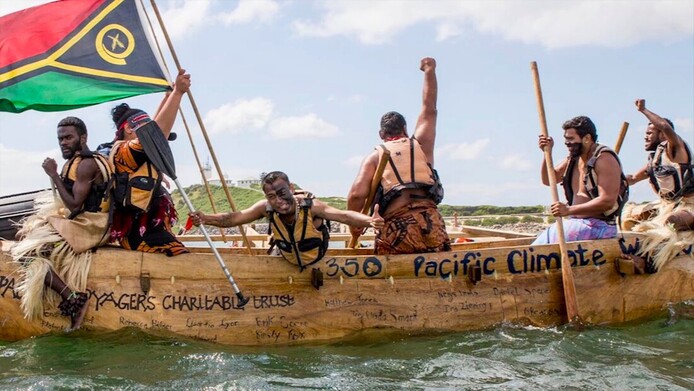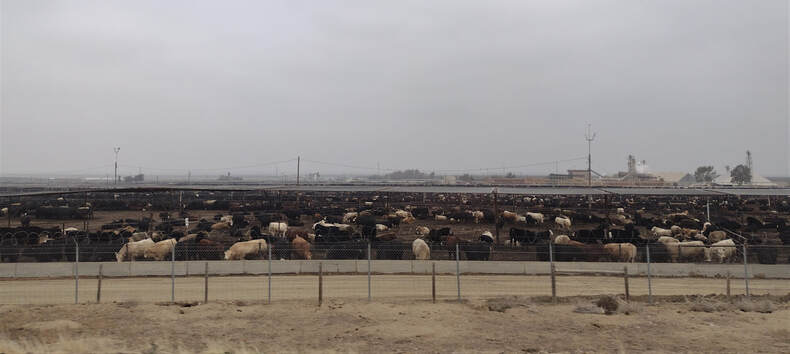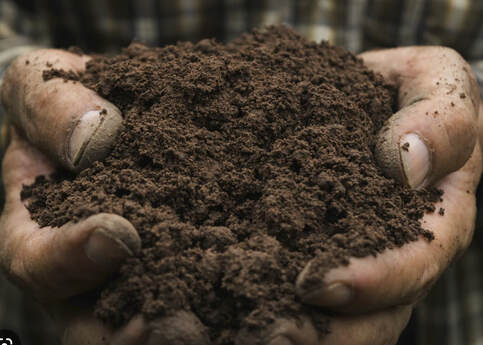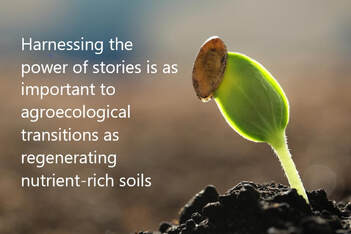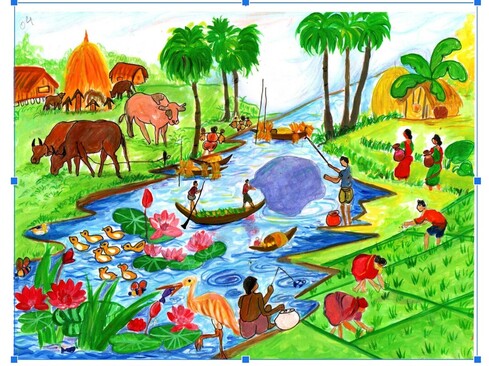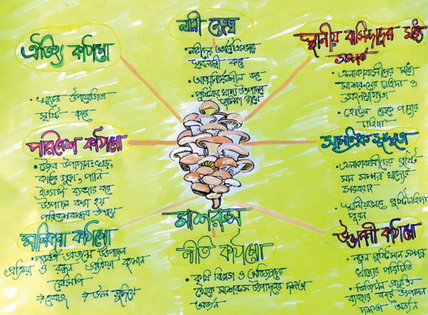Our approach
As a small, independent operating foundation run by human ecologists, social scientists, and farmers we are acutely aware that most development and conservation funding remains a top-down, bureaucratic force. Too often, NGOs' engagements are modeled as "interventions" that overtake local agency, put forth distorted notions of accountability, and fail to establish equity and sustainability.
The perspective and practices of allyship help inform IR's approach. The concept of allyship refers to an active, consistent commitment to equity and to unlearning and re-evaluating positions of power and privilege in order to operate in solidarity with marginalized groups. It involves building trusting relationships, listening and reflecting critically on how ideas and frameworks do, or do not, advance equity and contribute to local sovereignty, alongside prioritizing community-defined goals and ways to measure and define evidence of change and success.
We recognize that there are many different ways of knowing and being. Knowledge co-creation is characterized by the idea of collective generation of new knowledge drawn from a plurality of existing knowledge: scientific, traditional, Indigenous, farmers', and women's, to name a few.
While we have unique skill sets and resources to offer, we also come to learn, and to work with our partners to pursue socially and ecologically accountable pathways forward.
Given these guiding principles, we approach this process as a type of "co-application" in which we may develop project proposals for IR funding together through a series of conversations that identify ways we can assist our partners most effectively and creatively in achieving their goals.
The perspective and practices of allyship help inform IR's approach. The concept of allyship refers to an active, consistent commitment to equity and to unlearning and re-evaluating positions of power and privilege in order to operate in solidarity with marginalized groups. It involves building trusting relationships, listening and reflecting critically on how ideas and frameworks do, or do not, advance equity and contribute to local sovereignty, alongside prioritizing community-defined goals and ways to measure and define evidence of change and success.
We recognize that there are many different ways of knowing and being. Knowledge co-creation is characterized by the idea of collective generation of new knowledge drawn from a plurality of existing knowledge: scientific, traditional, Indigenous, farmers', and women's, to name a few.
While we have unique skill sets and resources to offer, we also come to learn, and to work with our partners to pursue socially and ecologically accountable pathways forward.
Given these guiding principles, we approach this process as a type of "co-application" in which we may develop project proposals for IR funding together through a series of conversations that identify ways we can assist our partners most effectively and creatively in achieving their goals.
A focus on Agroecology and Narrative Framing
Humans are story-telling animals
We all use stories and narratives to make sense of our worlds, as well as to imagine and create alternatives for what may yet be to come. To bring about agroecological transitions, we must
harness the power of stories to change the storyscape.
harness the power of stories to change the storyscape.
Island Reach offers technical advising to help groups and communities vitalize powerful agroecological stories, reclaiming the storyscape from the global industrial food system and building frameworks for community-driven biocultural resilience.
Have a look at this example of IR's collaboration on narrative framing and storybuilding with Nari Jhuri, a Bangladesh grassroots member-based group of women entrepreneurs and their partner civil society organization.
A BIG CHALLENGE
A PATH FORWARD
The industrial food system has dominated not only the ways and means of food production and distribution, but also the storyscapes of food, or what we might call the narrative frame. Real, local stories of foods and food pathways, with all their complex and particular values, embedded knowledge and relational ties, have been overtaken, fragmented, and in many cases disappeared in the wake of powerfully homogenizing, profit-driven narratives.
If your project involves the pursuit of a socially just and environmentally sustainable food system, whether as part of community development, climate change adaptation, or enriching biocultural diversity, we can back your efforts with funding plus a negotiated array of technical assistance to support your goals. For example, one important tool our work together can explore is the use of Value Webs. These form a latticework for reclaiming the narrative and advancing agroecological transitions. It is a valuable tool for your group's internal process as well as one you can deploy in co-creating knowledge with your community partners. You can read more about IR's use of Value Webs below.
When foods are treated as little more than commodities moving along according to logistics of value chains like any manufactured 'thing', markets become realms of "thin ties", diminished to calculated exchanges of goods for money and deprived of their vital role as a space for knowledge exchange, and as a scaffolding for community well-being.
|
Well-crafted agroecology narratives
|
More background on using value webs
Collective dialogue and narrative framing are social acts, and together constitute a distinctly relational praxis that loosens the hold of those fixed mainstream,narratives that configure peoples' lives. The struggle between mainstream corporate actors and social movements to control framing is at the center of so many social movements, from the climate movement, to decolonization, to agroecology. In our recent work in Bangladesh, together we pursued a combination of recovery and innovation in our partnership in a participatory process revolving around an engaging and holistic model called a Value Web. Narrative framing, or storylines generated with value webs, are social processes where people come to conceptually and materially/procedurally produce revitalized and new self-understandings. Narrative or dialogic activity constitute these "figured worlds" as sites of possibility (in terms of agency), but they are also set within the social realities of power of historical, social, cultural, organizational, discursive, interactional, and psychological circumstances that shape the range of possibilities in any time and place.
The value web activity, as a form of serious play involving the crafting of new figured worlds, can support communities with whom IR engages to explore possibilities of creating new narratives and practices, and deepened networks for social actions, that all together may lead to more autonomous worlds. This capacity of narratives for imagining, mapping and constructing other worlds, and for trying to make them a reality, is an essential feature of the human capacity to transform our own selves as well as our social contexts. How might we replace the end-directed conceptions of life processes with recognition of our capacities to continually overtake the destinations that are thrown up in our path. The value web presents an opportunity to take multivariate fragments and, in the words and hands of its users, create something unique to that time and place in a sovereign manner that can be trialed across communities and actors and adapted accordingly.
